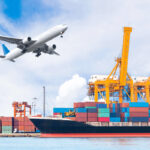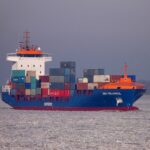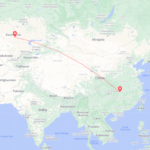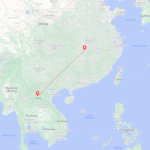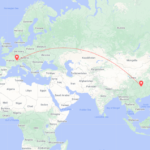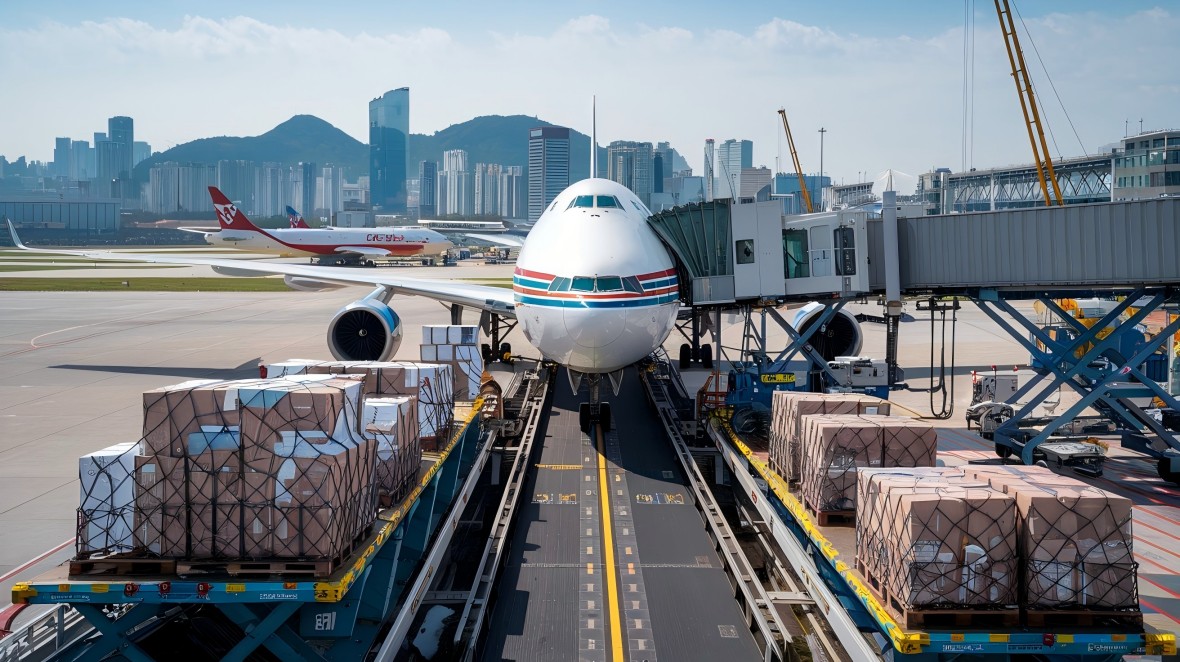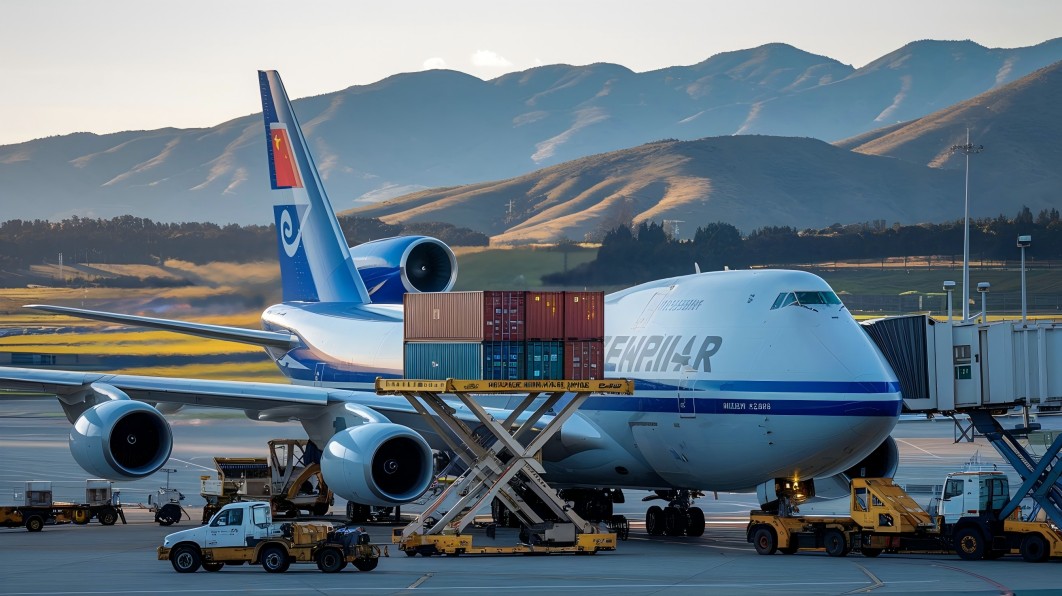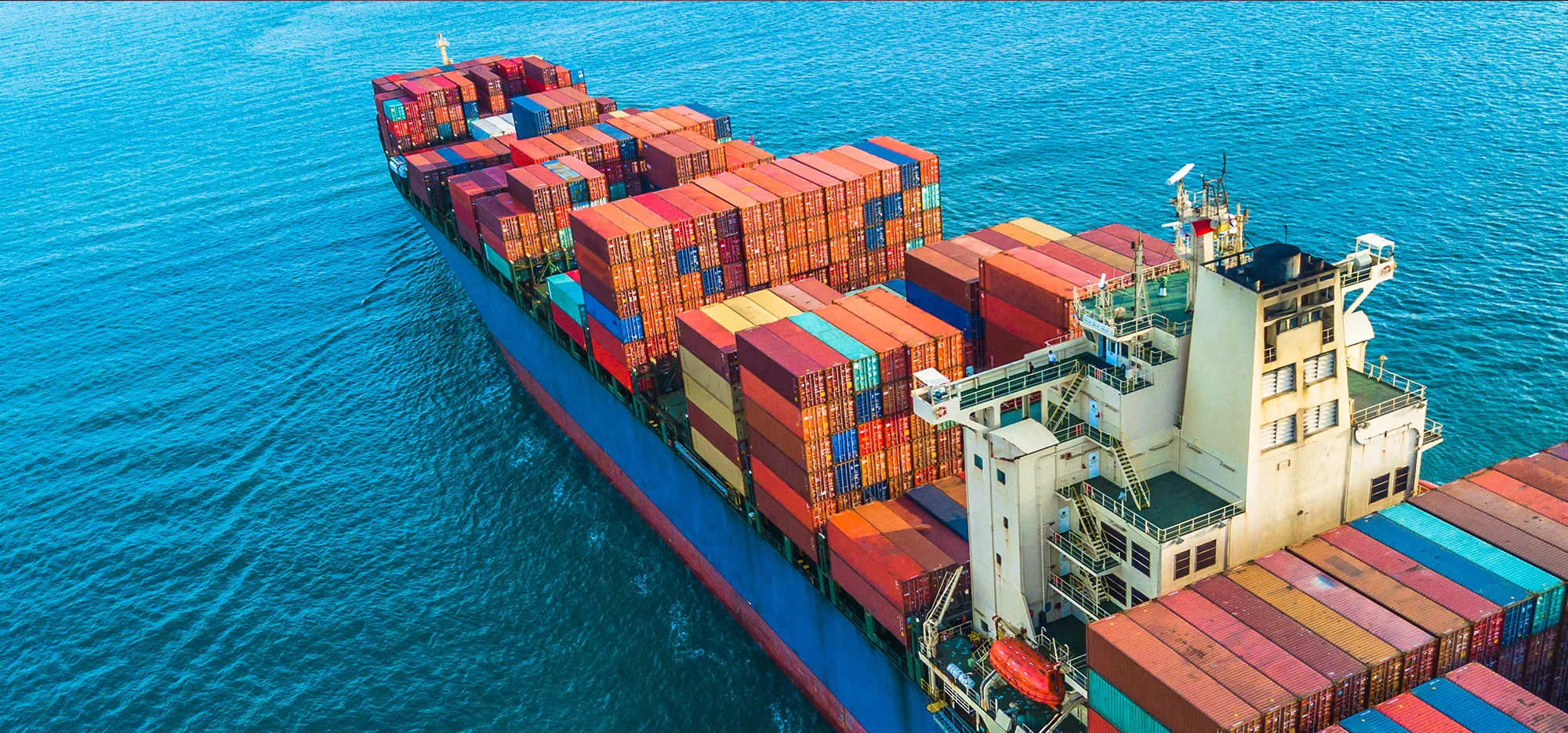In today’s global marketplace, effective shipping solutions are crucial for businesses looking to import goods from China to Austria. As international trade continues to expand, navigating the complexities of logistics can be a daunting task. This is where freight forwarders come into play. Acting as intermediaries, freight forwarders streamline the shipping process by managing transportation, documentation, customs clearance, and risk mitigation. Understanding the critical role of these professionals can significantly enhance your shipping efficiency, reduce costs, and simplify logistics management. In this article, we will explore the importance of freight forwarders, the benefits of their services, and key considerations for selecting the right partner for your business needs.
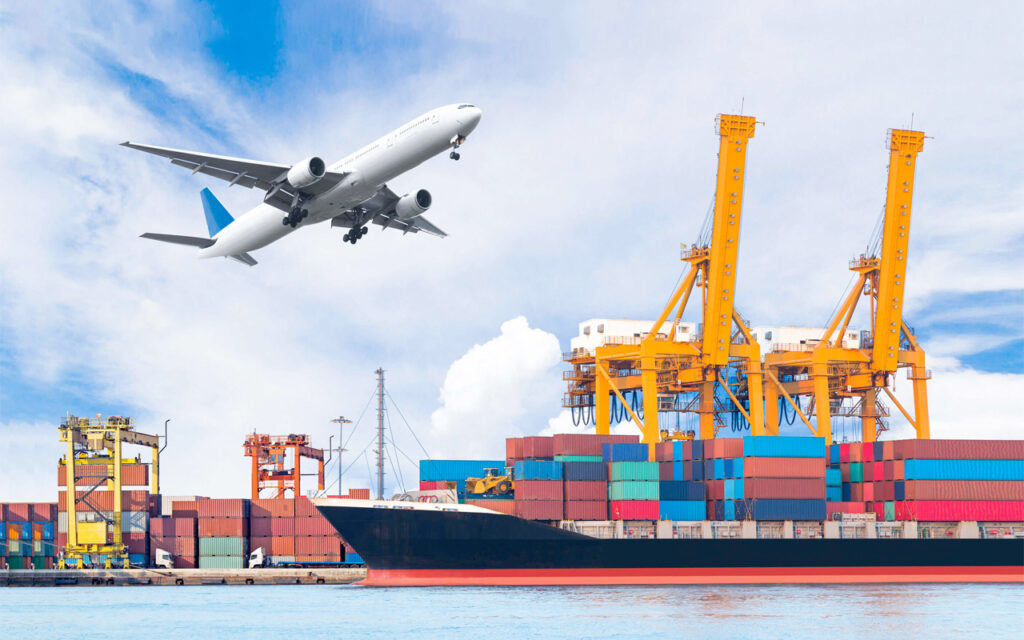
What is a Freight Forwarder?
A freight forwarder is an intermediary company or individual that arranges the transportation of goods on behalf of importers and exporters. Unlike traditional carriers, freight forwarders do not physically handle the cargo; instead, they facilitate the entire shipping process. This includes managing various aspects such as documentation, customs clearance, and logistics. Freight forwarders leverage their extensive networks and relationships with carriers to negotiate better shipping rates and ensure timely delivery.
Freight forwarders operate by consolidating shipments, which means they can combine smaller shipments from multiple clients into one larger shipment. This process not only maximizes efficiency but also reduces costs for clients. By understanding shipping routes, regulations, and industry best practices, freight forwarders provide a critical service to businesses engaged in international trade.
Role of Freight Forwarders in International Shipping
Freight forwarders play a crucial role in international shipping by acting as a bridge between shippers and carriers. Their responsibilities include:
Transportation Arrangement: Freight forwarders coordinate the best modes of transportation, whether it’s air freight, sea freight, or land freight, based on the shipment’s requirements and budget.
-
Documentation: They handle the complex paperwork involved in shipping, including bills of lading, commercial invoices, and customs declarations, ensuring compliance with international trade regulations.
Customs Clearance: Freight forwarders assist with the customs clearance process, helping to navigate the intricacies of tariffs, duties, and import/export regulations. This service is particularly vital when shipping from China to Austria, where customs regulations can vary significantly.
Insurance Services: They often provide information on insurance services to safeguard goods during transit, mitigating risks associated with loss or damage.
-
Tracking and Communication: Freight forwarders keep shippers informed about the status of their shipments, offering real-time tracking and updates throughout the shipping process.
Why Choose a Freight Forwarder for Shipping from China to Austria?
Expertise in International Shipping
When shipping goods from China to Austria, expertise in international shipping is paramount. A proficient freight forwarder has in-depth knowledge of shipping routes, customs regulations, and local market demands. Their expertise enables them to offer valuable shipping advice, ensuring that goods are transported efficiently and legally. By relying on a freight forwarder’s expertise, businesses can navigate the complexities of international shipping without the need for extensive industry knowledge.
Cost-Effectiveness
One of the most significant advantages of working with a freight forwarder is cost-effectiveness. Freight forwarders have established relationships with multiple carriers, allowing them to negotiate competitive rates. They can provide businesses with the best shipping options tailored to their budget. In many cases, consolidating shipments through a freight forwarder can lead to significant savings compared to booking directly with a carrier. This is especially beneficial for businesses looking to import goods from China to Austria while minimizing transportation expenses.
Simplified Logistics Management
Managing logistics can be a daunting task, particularly for businesses new to international trade. A freight forwarder simplifies this process by offering a one-stop international logistics service. They handle all aspects of logistics management, from transportation and warehousing to customs clearance and delivery. This comprehensive service allows businesses to focus on their core operations rather than getting bogged down in logistical details.
Risk Management
International shipping carries inherent risks, including delays, loss, or damage to goods. Freight forwarders provide essential risk management services by offering insurance services and proactive communication. They assess potential risks and develop strategies to mitigate them, ensuring that businesses are protected against unforeseen circumstances. By entrusting risk management to a freight forwarder, companies can operate with greater peace of mind.
Value-Added Services
Freight forwarders often offer a range of value-added services that enhance the logistics experience. These services may include:
-
Warehousing Services: Freight forwarders can provide temporary storage solutions for goods before they are dispatched, helping businesses manage inventory effectively.
-
Door-to-Door Shipping Services: This includes complete logistics management from the supplier’s location in China to the final destination in Austria, streamlining the shipping process.
-
Consultation on Regulatory Compliance: Freight forwarders assist businesses in understanding and complying with customs regulations, trade agreements, and import duties specific to Austria.
-
Specialized Services: Certain freight forwarders may offer specialized services tailored to specific industries or types of cargo, such as hazardous materials or temperature-sensitive goods.
By leveraging these value-added services, businesses can enhance their supply chain efficiency and improve overall customer satisfaction.
Choosing the right freight forwarder, such as Dantful International Logistics, ensures that your shipping from China to Austria is handled with professionalism and expertise. Dantful provides highly professional, cost-effective, and high-quality logistics services tailored to global traders. With their comprehensive range of services, including customs clearance and warehouse services, businesses can navigate the complexities of international shipping with confidence.
Read More:
- Shipping From China To Netherlands
- Shipping From China To Spain
- Shipping From China To Germany
- Shipping From China To France
- Shipping From China to Italy
- Shipping From China To Poland
- Shipping From China to United Kingdom
Steps to Select the Right Freight Forwarder from China to Austria
Assess Your Specific Shipping Needs
The first step in selecting an appropriate freight forwarder is to assess your specific shipping needs. Consider factors such as the nature of the goods, shipping volume, and delivery timelines. For instance, are you shipping bulky items or delicate products? Are you dealing with time-sensitive shipments or can your goods be transported more leisurely? Understanding your requirements will guide you in choosing a freight forwarder that can provide tailored services to meet your expectations.
Additionally, consider any regulatory requirements that may apply to your products, such as permits or certifications needed for specific items when shipping from China to Austria. Identifying these needs at the onset will streamline the selection process and help in making informed decisions.
Research Potential Forwarders
Once you have a clear understanding of your shipping needs, the next step is to research potential freight forwarders. Start by looking for companies that specialize in shipping from China to Austria or have experience in European logistics. Utilize online resources, trade associations, and industry forums to compile a list of potential candidates.
Key factors to consider during your research include:
- Industry Specialization: Look for forwarders with experience in your specific industry (e.g., electronics, textiles, or machinery).
- Global Network: A strong global network signifies that the forwarder can navigate various regulations and offer multiple shipping options.
- Certifications and Memberships: Verification of certifications like IATA, FIATA, or local trade associations can indicate reliability and adherence to industry standards.
Request and Compare Quotes
Once you have identified several potential freight forwarders, the next step is to request and compare quotes. Provide each forwarder with detailed information about your shipping requirements to receive accurate estimates. Pay close attention to the following:
- Pricing Structure: Ensure you understand what is included in the quote. Some forwarders may offer low initial rates but have hidden fees or surcharges that can increase the overall cost.
- Shipping Methods: Evaluate the shipping methods recommended and ensure they align with your needs, whether it’s air freight, sea freight, or express shipping.
- Transit Times: Compare estimated transit times and assess whether they meet your deadlines.
Creating a comparison table can help visualize the differences in costs, services, and transit times offered by each forwarder, facilitating an easier decision-making process.
Check References and Reviews
Before finalizing your choice of freight forwarder, it is critical to check references and reviews. Reach out to past clients or industry peers who have utilized the services of potential candidates. Their experiences can provide insights into the forwarder’s reliability, professionalism, and ability to handle unexpected challenges during the shipping process.
Online reviews and testimonials can also be invaluable resources. Look for feedback regarding the forwarder’s communication, problem-solving skills, and overall customer service. A freight forwarder with a strong reputation will likely provide a more seamless shipping experience.
Evaluate Communication and Responsiveness
Effective communication is a hallmark of a competent freight forwarder. During your interactions, evaluate their communication style and responsiveness. A good forwarder should be available to answer your questions, provide updates, and be proactive in addressing potential issues.
Assess their responsiveness during the quote process; if they are slow to reply or unclear in their communication, it may be indicative of future service levels. Opt for a freight forwarder that prioritizes clear, timely communication, as this is crucial for the smooth handling of logistics and shipping operations.
Consider a Trial Shipment
If you are at a crossroads in your decision, consider conducting a trial shipment with the selected freight forwarder. A smaller shipment can give you insight into their operational capabilities, efficiency, and service levels before committing to larger volumes.
Evaluate the entire process from booking to delivery, noting areas such as communication, timeliness, and problem resolution. This firsthand experience can significantly inform your decision and ensure you choose a partner that aligns with your business needs.
Key Shipping Methods from China to Austria
When selecting a freight forwarder, understanding the available shipping methods is crucial for meeting your logistical needs. Below are the three key shipping methods commonly utilized for transporting goods from China to Austria:
Air Freight
Air freight is the fastest shipping method, making it ideal for time-sensitive shipments. This method is particularly advantageous for high-value or perishable goods, as it minimizes transit time and reduces the risk of damage.
- Advantages:
- High speed of delivery (typically 1 to 3 days).
- Reduced risk of theft and damage due to limited handling.
- Ideal for urgent shipments.
- Limitations:
- Higher costs compared to other methods.
- Limited cargo capacity, restrictions on size and weight.
Sea Freight
Sea freight is the most cost-effective method for shipping large volumes of goods, making it suitable for bulk orders. While transit times are longer (typically ranging from 20 to 40 days), sea freight is often preferred for non-urgent shipments due to its lower cost.
- Advantages:
- Lower shipping costs per unit for large volumes.
- Capacity to handle oversized and heavy cargo.
- Environmentally friendly option compared to air freight.
- Limitations:
- Longer transit times.
- Potential for delays due to weather or port congestion.
Express Shipping
Express shipping combines elements of both air and ground transport, providing expedited shipping services that often include door-to-door delivery. This method is beneficial for businesses that require fast and reliable service without the premium costs associated with traditional air freight.
- Advantages:
- Quick transit times (usually 2 to 5 days).
- Streamlined customs clearance and delivery services.
- Flexible options for various shipment sizes.
- Limitations:
- Higher rates than standard shipping methods.
- Limited to specific carriers or networks.
By evaluating these shipping methods and understanding the unique advantages and limitations associated with each, businesses can make informed decisions about their logistics strategy. Selecting the right freight forwarder, such as Dantful International Logistics, ensures that you receive tailored services that align with your shipping requirements from China to Austria. Dantful’s expertise in international logistics provides a comprehensive solution to streamline your shipping process, ensuring efficiency and reliability at every stage.
Choosing the Right Freight Forwarder from China to Austria
Selecting an appropriate freight forwarder is a critical decision that can significantly impact the efficiency and cost-effectiveness of your shipping operations. Here are the key factors to consider when making this choice:
Reputation and Experience
The reputation and experience of a freight forwarder should be one of your top priorities. A forwarder with a solid reputation in the industry is likely to offer reliable services, as they have proven their capabilities over time. Here are some considerations regarding a forwarder’s reputation and expertise:
-
Industry Standing: Research the forwarder’s standing in the logistics community. Look for testimonials, ratings, and feedback from previous clients. Platforms such as Google Reviews, LinkedIn, and industry forums can provide valuable insights into the forwarder’s performance.
-
Years of Experience: Forwarders with years of experience in shipping from China to Austria are more likely to navigate the complexities of international shipping effectively. Their familiarity with customs regulations and shipping routes can lead to smoother operations.
-
Specialization: Consider whether the forwarder has experience with your specific type of goods. For example, if you are shipping electronics or perishable items, look for a forwarder that specializes in those categories, as they will understand the unique challenges involved.
Service Offerings and Flexibility
Another crucial factor to evaluate is the service offerings and flexibility of a freight forwarder. Different businesses have varying shipping needs, and a forwarder that can adapt to those needs will be more valuable. Here are some aspects to assess:
-
Comprehensive Services: Ensure that the forwarder provides a wide range of services, including customs clearance, insurance services, warehouse services, and various shipping methods (air, sea, express). A one-stop logistics partner can simplify your shipping process.
-
Customizable Solutions: Look for forwarders that offer tailored solutions based on your specific logistics requirements. This could involve flexible shipping options, consolidated shipments, or specialized handling for fragile cargo.
-
Scalability: As your business grows, your logistics needs may change. Choose a freight forwarder that can scale its services accordingly, whether you need to increase shipping volumes or adapt to new markets.
Customer Support and Communication
Effective customer support and communication are essential elements of a successful shipping relationship. The freight forwarder you select should prioritize clear communication and be responsive to your inquiries. Here’s what to look for:
-
Availability: A reputable forwarder should offer accessible customer support, providing multiple channels for communication, such as phone, email, and live chat. Being able to reach out easily can be crucial during urgent situations.
-
Proactive Communication: The forwarder should keep you informed about the status of your shipment, including updates on transit times, potential delays, and any issues that may arise. Proactive communication helps to minimize surprises and allows for timely decision-making.
-
Problem-Solving Capabilities: Evaluate how well the forwarder handles challenges. A responsive team that can quickly address issues—such as delays or documentation problems—can make a significant difference in the shipping process.
Cost Considerations for Shipping from China to Austria
Understanding the costs involved in shipping from China to Austria is vital for effective budgeting and financial planning. Below is a breakdown of potential costs and tips for minimizing shipping expenses.
Breakdown of Potential Costs Involved
Shipping costs can be divided into several categories, each with its own implications for your overall budget.
- Shipping Method Costs: The choice of shipping method is one of the most significant factors influencing overall costs. Below is a comparison table of the typical costs associated with various shipping methods:
| Shipping Method | Estimated Cost Range (USD) | Estimated Transit Time |
|---|---|---|
| Air Freight | $5 – $10 per kg | 1 – 5 days |
| Sea Freight | $300 – $1,500 per container | 20 – 40 days |
| Express Shipping | $30 – $50 per kg | 2 – 5 days |
- Additional Fees: In addition to shipping costs, several other fees may arise during the shipping process:
- Customs Duties and Taxes: Import duties can vary based on the type of goods being imported. This is an essential factor to consider when calculating the total cost.
- Insurance Costs: Depending on the value of your goods, obtaining shipping insurance may be advisable. Insurance costs can vary but typically range from 1% to 3% of the cargo value.
- Handling Fees: Some forwarders may charge handling fees for processing your shipment at ports and during customs clearance.
Tips for Minimizing Shipping Expenses
-
Compare Quotes: Always request quotes from multiple freight forwarders to find the best rates. Comparing services and prices can help you identify cost-effective options that meet your shipping needs.
-
Consolidate Shipments: If you have smaller shipments, consider consolidating them into one larger shipment. This can reduce costs associated with per shipment fees and maximize the use of container space.
-
Plan Ahead: By planning your shipments in advance, you can take advantage of lower rates and better availability. Last-minute shipping often incurs higher costs due to urgency.
-
Choose the Right Shipping Method: Evaluate the urgency of your shipment against the costs of shipping methods. While air freight is faster, it can be more expensive. For non-urgent shipments, sea freight may be a more economical choice.
-
Utilize Free Trade Agreements: Be aware of any applicable trade agreements that may reduce customs duties or offer other benefits when importing goods into Austria. Familiarizing yourself with such agreements can result in significant savings.
-
Negotiate Terms: If you have regular shipping needs, consider negotiating terms with your freight forwarder. Long-term relationships can lead to discounted rates and better service terms.
By comprehensively understanding the costs associated with shipping and adopting strategies to minimize expenses, businesses can achieve a more cost-effective logistics operation when importing goods from China to Austria. Partnering with a knowledgeable freight forwarder like Dantful International Logistics can further enhance your shipping efficiency and reduce overall costs. Our expertise and flexibility ensure that your logistics needs are met while maintaining a focus on budget and quality.

Young Chiu is a seasoned logistics expert with over 15 years of experience in international freight forwarding and supply chain management. As CEO of Dantful International Logistics, Young is dedicated to providing valuable insights and practical advice to businesses navigating the complexities of global shipping.


